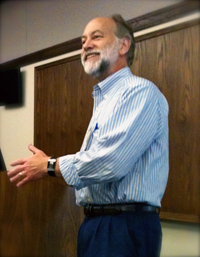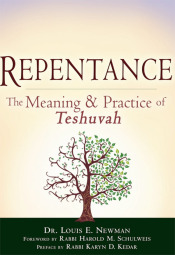What is ethics coaching?
Ethics coaching provides a supportive environment in which to reflect—
- on ethical choices you are facing,
- on the sort of person you are now and are striving to become, and
- on the impact of your actions on others, as well as theirs on you.
It offers you an opportunity to reflect on your values and align your life choices with them more fully. It can provide a safe space in which to consider your own moral development, especially if you are feeling stuck. It enables you to take a clear-eyed look at your relationships with family members, friends or co-workers with whom you have an ethical conflict. And it encourages you to contemplate your ethical legacy, how you want to be remembered.
My approach
I do not see my role as “solving” your ethical dilemmas, or telling you what is right. Ethics coaching is not dogmatic, directive, or judgmental, and it is not about promoting a particular moral outcome.
I will listen carefully to your questions and concerns, try to understand them in the larger context of your life, and to affirm your desire to grow ethically or to resolve a moral conflict. Getting to know the moral concerns at the center of your life, or the goals you have set for yourself, is the foundation of the work that we do together.
My primary role is to ask you questions that prompt deeper reflection, or that reframe a problem in a way that enables you to see it more clearly. I may invite you to consider options that haven’t occurred to you. I may prompt you to examine the roots of your moral beliefs and to assess the ways in which they are, or are not, serving you well at present. I may ask you to articulate the values that motivate you, ponder the choices you have made in the past that trouble you or contemplate the ways in which you wish to grow in the future. There is no single, standard way to proceed; it all depends on who you are and who you want to become.
All consulting sessions are strictly confidential. My commitment to you is to create a space in which you feel safe to share whatever you wish to talk about.
In between sessions, I may ask you to do some outside reading and reflect on it, engage in an exercise of values clarification, or do some journaling. This will enable us to make the most of our time in session.
Ethical coaching can address a range of questions, such as
- Working through moral dilemmas
Examples include: when someone at work asks you to do something you regard as unethical, or when a family member behaves unethically and you aren’t sure if, or how, to intervene
- Addressing the challenge of forgiving others
Examples include: when someone in your past hurt you and you can’t figure out how to move on, or when someone has not even acknowledged how they offended you and you feel you can’t forgive them until they do
- Growing ethically
Examples include: how to recognize your own moral shortcomings and learn from past mistakes, or how to set goals for your moral development and achieve them
- Ethical parenting
Examples include: how to instill in your children a set of moral values, or how to parent them effectively when they behave inappropriately
- Health care decisions
Examples include: making decisions about appropriate health care for aging parents, or treatment decisions when someone you love is nearing the end of life
- Money and values
Examples include: clarifying your values around how to spend, save and give away your money, or estate planning with an eye to the ethics of bequeathing your assets to your descendants
- Social responsibility
Examples include: discerning the extent of your moral responsibilities to your community, your society or the planet
- Creating an ethical legacy
Examples include: writing an “ethical will” or talking with your children about the moral lessons that you want to transmit to them
- Exploring questions of meaning and purpose
Examples include: how to live with renewed purpose in the midst of a life transition, or how to develop a practice of daily moral self-reflection
Testimonials
“It’s hard to think of someone who is a more natural mentor than you are, because you live out a unique combination of integrity, compassion, truthfulness, and commitment to continual growth that is easy to respond to and to emulate in a healthy and reciprocal way. You bring out the best in people, to put it more simply. . . .Through your own example and through your role as conversation partner, colleague, mentor and friend, you’ve modeled a wonderful combination of self-acceptance and compassion for self and others, a great sense of humor and an awesome laugh, along with a courage to embrace and face new things, whether difficult challenges or exciting opportunities for growth.” --Lori P.
“Whenever we spoke, you always listened with such warmth and empathy—and I always stepped away feeling empowered, affirmed and filled up with new ideas. . .” --Kristin B.
“. . .your encouragement has never been cheap encouragement; it comes from a place of high standards ethically and otherwise and you have a way of calling me or others to account in a way that is as candid as it is humane.” --Michael M.
“You are among the wisest and most acutely sensitive people I know.” --Steve P.
“I count it a great honor to have worked with Louis Newman. I know him as someone who first accepts the humanity of a situation and then proceeds to apply a well-chosen tool from his extensive kit of successful ways to challenge all the humans involved to do better.” --Paul B.
“Every encounter with Louis has been like venturing into deep waters, except the waters are warm and I can freely breathe.” --Drew W.
“As an ethicist Louis Newman has spent much of his life pondering questions of right and wrong, but from personal observation I know that. . . he well realizes that sometimes striving to make peace, rather than deciding who is right in some abstract sense, is really the right course of action.” --Jay L.
“With Louis, I can see what it means to put moral ideals into practice. . .what it means to be an advisor and teacher and moral guide.” --Geoffrey C.
“You always put me at ease and offered sage and realistic advice.” --Ainsley T.
“During a time of life when I was often lost in abstractions, you consistently and gently pointed me back to my relationships with people and to being part of a community.” --Dan K.
“I will always be indebted to you for your endless knowledge, wisdom, kindness and advice. Most of all, your warmth and guidance as a mentor helped shape me into the person I am today.” --Danny U.
“Louis was (and continues to be) a compassionate and empathic mentor and advisor. During a particularly tough time. . .Louis was helpful, caring and understanding. I will never forget how carefully he listened to me and how kind his words were during that time.” --Kate K.

